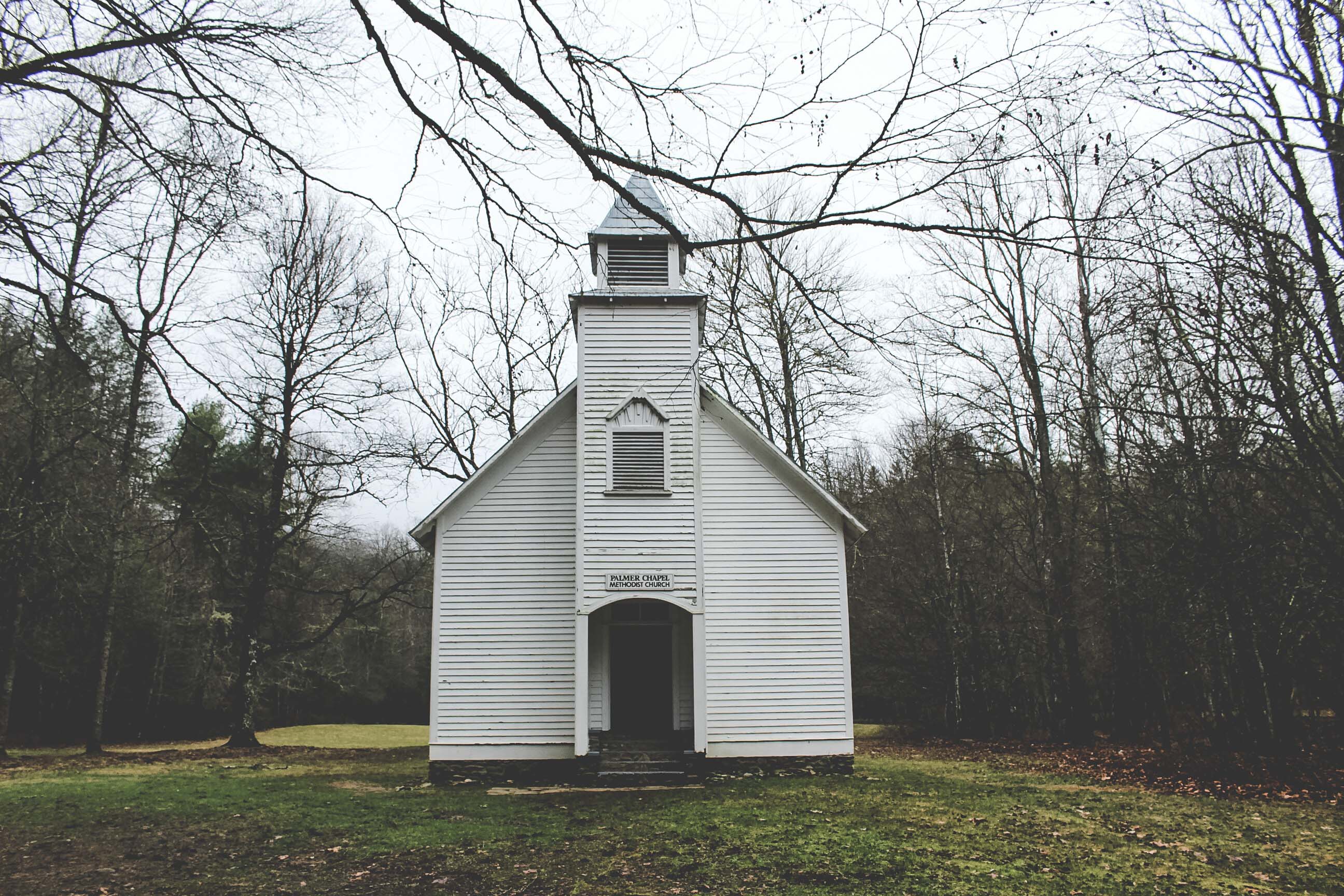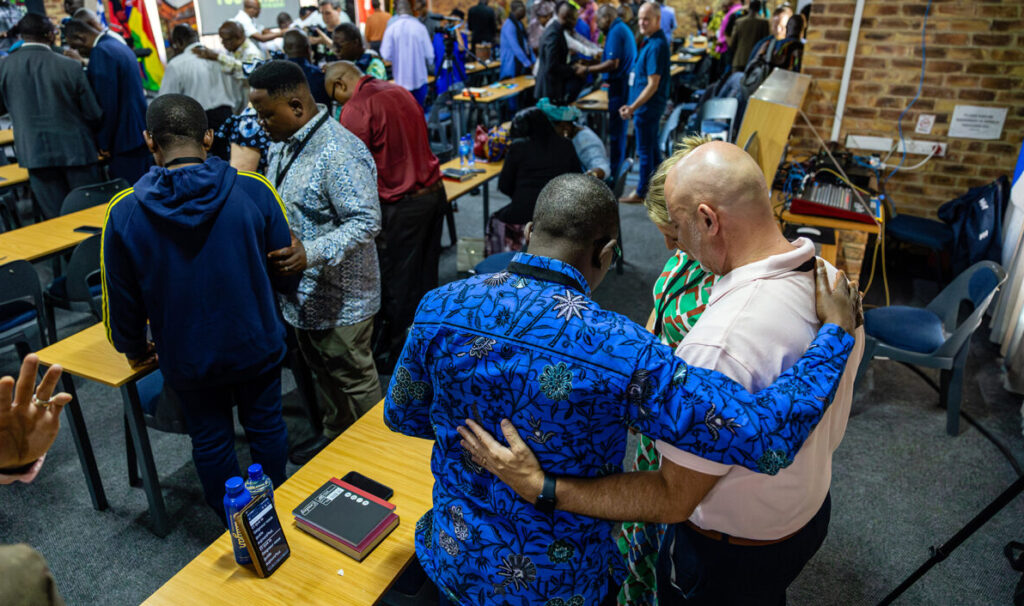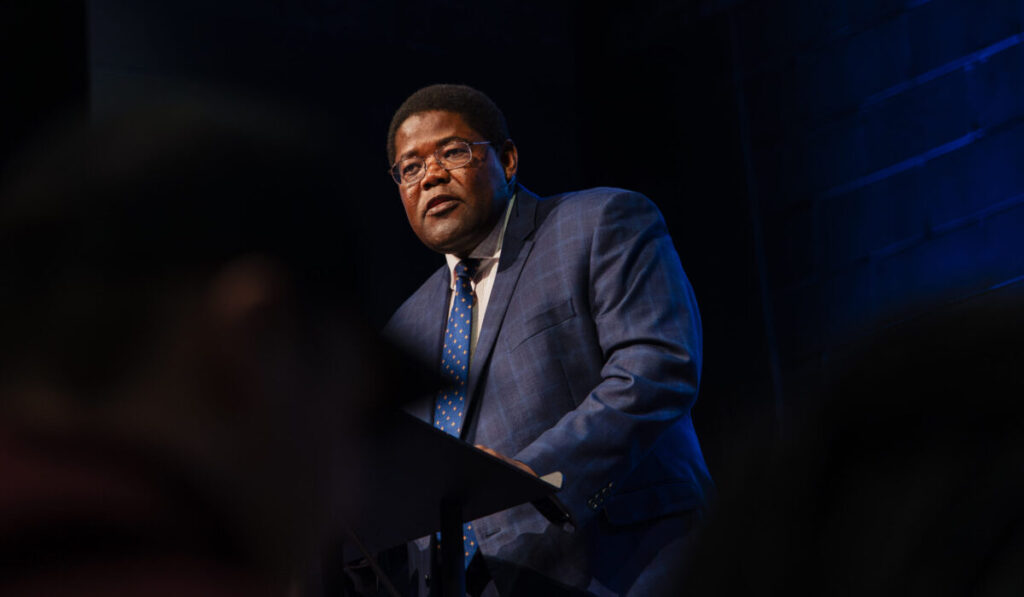A few years back, Dennis Atwood was having a heck of a time getting his hands on a discipleship curriculum designed for small or even mid-sized congregations.
Most of what he found was tailored to churches much larger than the North Carolina congregation of which he is pastor.
“Either it was too … complex or too surface and simple,” Atwood said. So he took matters into his own hands and wrote a book.
While small-church ministers don’t need to write books to instruct their congregations, Atwood and others say a willingness to innovate is a must in a religious culture dominated by mega- and other large churches.
But frustration about the lack of resources for churches with less than 150 in Sunday morning worship is real.
Karl Vaters unpacked the topic in his Christianity Today blog, “Pivot: Innovative Leadership from a Small Church Perspective.”
‘Big church perspective’
“You’re looking for help to make your church better, healthier, stronger and more kingdom-minded, but almost everything you find comes from a big church perspective,” Vaters wrote in the Dec. 1 post.
Small-church leaders usually are bombarded with ideas beneficial largely to big churches with big staffs, he said.
Ideas that Vaters said he read recently include holding regular staff visioning meetings, using video announcements and using only the most skilled people for ministry positions.
“I don’t disagree with any of those ideas,” Vaters wrote. “But none of these suggestions was tempered with recognition of small church realities and alternative solutions.”
And it’s not that smaller churches are unwilling to try those and other ideas.
“Most small churches would love to implement big church ideas, but like David trying on Saul’s armor, they don’t fit.”
The lack of materials geared for small congregations, which comprise the majority of American congregations, is a serious disconnect, said Eddie Hammett, a congregational consultant and president of Transforming Solutions in North Carolina.
“I think it’s a very pressing problem that covers a lot of arenas in church life,” he said, such as curriculum, bridging gaps between generations, committee structures and operations and pastoral function.
Materials for Sunday School and other religious education are often the scarcest.
“We (in Baptist life) have always followed an age-graded curriculum,” he said.
And for Mount Pleasant Baptist Church, Georgiana, in Butler Baptist Association, that traditional setup works, said Pastor Danny Ellis. In his church that runs about 80 on a Sunday morning, resources have never been difficult to find, he said, but he sees where bivocational pastors “would have some trouble sometimes.”
Like at Oakes Chapel Baptist Church, Vernon, in Lamar Baptist Association, for instance.
Joe Moseley, bivocational pastor of Oakes Chapel Baptist, said he does have trouble finding resources and materials for Sunday School for his church, where the average attendance for Sunday morning worship is 55. Of those, about 30 including youth and children come to Sunday School.
“Right now it’s just one big happy family in our Sunday School,” he said. “We’re not quite to the size yet where we can break up into different groups.”
As one who has only been a pastor since April, Moseley said he’s learning “more and more that the preaching is important but the Sunday School and small groups are what makes [spiritual growth] happen.”
Even when the material exists, Hammett said, a lot of churches can’t afford it.
Whether expense or lack of availability is the block, the way around requires ministers to know their churches and communities, Atwood said.
“The best advice I ever got in seminary was to remember that all ministry is contextual,” he said.
“For me that means I take the best of what I can learn from other people,” he said.
Focusing small
Overcoming challenges always requires a knowledge and acceptance of a church’s setting, in addition to its size.
Israel Price, pastor of Mount Zion Baptist Church, Hamilton, in Marion Baptist Association, agreed.
While he’s never had any problems finding resources that work for Mount Zion Baptist, which averages 130 on Sunday mornings, Price said the church’s main focus is small groups.
“For us it’s always been my goal just to love Jesus and love people. Keep it simple and teach the Word of God unapologetically,” Price said. “If you can do those things, I know it’ll work whether it’s for 10 or 10,000 people.” (BNG, TAB contributed)






Share with others: